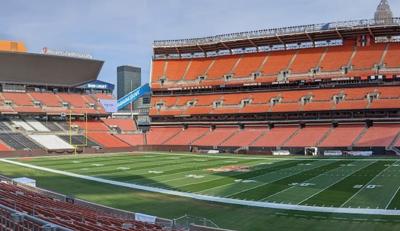
(The Center Square) – Ohio’s Senate Republicans are proposing to take $600 million from the Ohio Unclaimed Funds Program and pay the funds back using a tax capture at the site of a new Cleveland Browns stadium in Brook Park.
The state then plans to create a tax capture at the site to replenish the fund as the Browns move to Brook Park into what is expected to be a $2.4 billion stadium with surrounding development.
Ohio Senate President Rob McColley's newsletter said the plan “saves the state $400 million in debt service” as it takes the funds out of the $3.7 billion balance of unclaimed funds held by the state.
McColley said in the newsletter that the tax capture “is forecast to return $636 million to the state from incremental tax revenues.”
The issue is that the state currently collects taxes at the Browns’ Huntington Bank Field and creating a tax capture at a new stadium would mean the state would be collecting less tax money for its general fund.
Economists who have extensively studied the public funding of sports stadiums show that they do not produce the promised benefits and instead rely on diverted spending from elsewhere in a region.
“This is not free money,” economist J.C. Bradbury of Kennesaw State University in Georgia told The Center Square. “You can't just pull public stadium funding out of the air.
“It has to come from other priorities or out of taxpayers' pockets. This isn't forward-thinking, it's willful ignorance. This is an F answer in Econ 101.”
Despite that, Ohio Republicans called their plan a “visionary economic plan” and a “win-win for taxpayers and the economy.”
“This is a forward-thinking plan that acknowledges the economic impact professional sports has on our communities,” Sen. Jerry Cirino, R-Kirtland, said in a statement. “This program protects taxpayers, promotes growth, and is positive for the General Fund, while putting idle dollars to work that have been sitting in the state treasury, often for decades.”
Ohio’s Office of Budget Management recently sent a memo related to public funding for the stadium saying that the Browns’ economic claims were filled with inconsistencies and incorrect information.
“Ohio would own or partially own a sports stadium and the responsibility for maintenance, with no additional revenue,” the OBM report says. “The state does not currently own any professional sports stadiums/fields/arenas.
“If this amendment is enacted, OBM recommends that the state receive revenue-sharing from events commensurate with our property ownership share.”
• • •• • •
